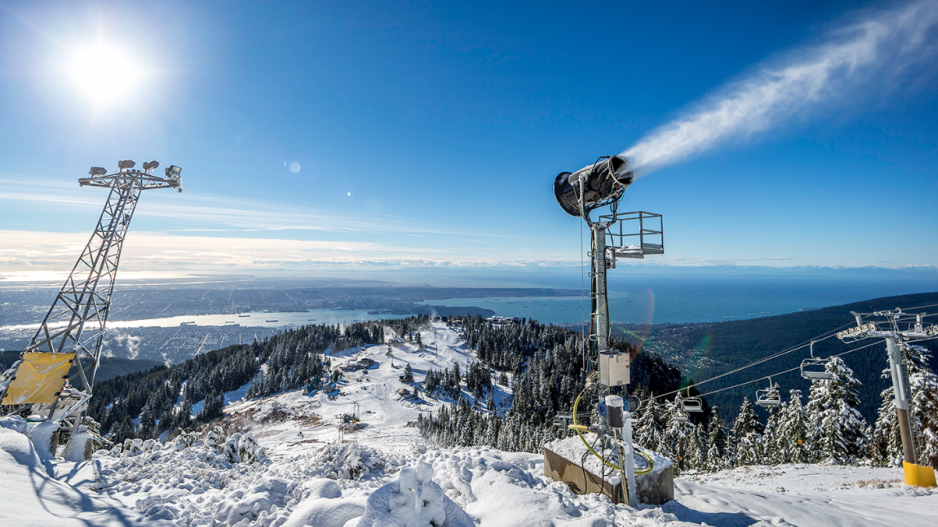Meteorologists are calling for a warmer than usual winter in Western Canada, but the forecast for B.C. ski hills should be better than last year’s dismal conditions thanks to changing ocean temperature patterns.
Last winter, many ski hills saw more rain than snow. The ski hills nearest Vancouver, located near the coast and at relatively low elevation, were hit hard: Grouse, Seymour and Cypress all closed early in the skiing season.
“This year’s winter will probably be more like the winter of the Vancouver Olympics in 2009/2010 and 1997/1998,” UBC professor Michael Pidwirny wrote to Business in Vancouver in an email. “2009/10 and 1997/98 are the last two times that we had a strong El Nino.”
A mild El Nino was in effect last winter, but the very warm conditions were largely due to an unusual “blob” of very warm water in the Pacific Ocean. But, Pidwirny explained, “the Blob is on its way out.”
“The high pressure ridge and calm winds over the northeastern Pacific Ocean that caused it form from fall 2013 to summer 2015 are now gone, replaced with the normally occurring low pressure systems and much windier conditions,” he wrote.
There’s a 95% chance the west coast of North America will experience a strong El Nino this winter. That means it’s going to likely be a few degrees warmer than a normal winter, but not as bad as last year. There will likely be between 10-20% less snowfall than normal in southern B.C., Pidwirny wrote.


Temperatures in 2015/2016 are forecasted to be lower than the very warm winter of 2014/2015. Source: National Ocean and Atmospheric Administration.
The effect of the temperature variation will depend on where each resort is located, said David Lynn, president and CEO of the Canada West Ski Areas Association.
“As you move further eastward into Banff and Jasper, they typically have very cold winters. If at a certain point in their winter it’s -20 degrees and it goes to -18 degrees, that’s not a big deal for them,” Lynn said.
“But if you go from -1 degree to one degree it is a big deal.”
Ski hills, especially the larger resorts, are already seeing increased pre-bookings for this upcoming season and expect to benefit from the low Canadian dollar, Lynn said.
Pidwirny, an associate professor of environmental science at UBC, has been researching how changing weather patterns will affect ski hills. Like other scientists who study changing mountain weather conditions, Pidwirny has found the trend line is for the amount of snow on B.C. mountains to decline as warmer temperatures mean precipitation is more likely to fall as rain rather than snow, especially on the coast and at lower elevations.
However, conditions will vary from year to year.
CWSAA has sponsored Pidwirny’s research, Lynn said, and ski hills now regularly invest in activities like summer grooming (removing rocks and brush from runs to make the most of the snow that does fall) and expensive snow making equipment.
@jenstden




